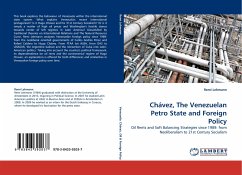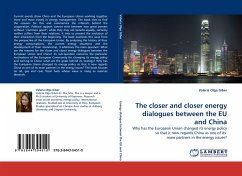This book explores the behaviour of Venezuela within the international state system. What explains Venezuela's recent international protagonism? Is it Hugo Chávez and his '21st Century Socialism'? Or is it simply a matter of high oil prices and Washington's hostile stance towards center of left regimes in Latin America? Dissatisfied by traditional theories on International Relations and The Natural Resource Curse, Remi Lehmann analyzes Venezuelan foreign policy since 1989: from the neoliberal oriented governments of Carlos Andrés Pérez and Rafael Caldera to Hugo Chávez. From FTAA tot ALBA, from OAS to UNASUR, the Argentine bailout and the reinsertion of Cuba into Latin-American politics. Taking into account the country's political framework, its dependendence on oil rents and the controversial regime of Hugo Chavez, an explanation is offered for both differences and similarities in Venezuelan foreign policy over time.
Bitte wählen Sie Ihr Anliegen aus.
Rechnungen
Retourenschein anfordern
Bestellstatus
Storno








